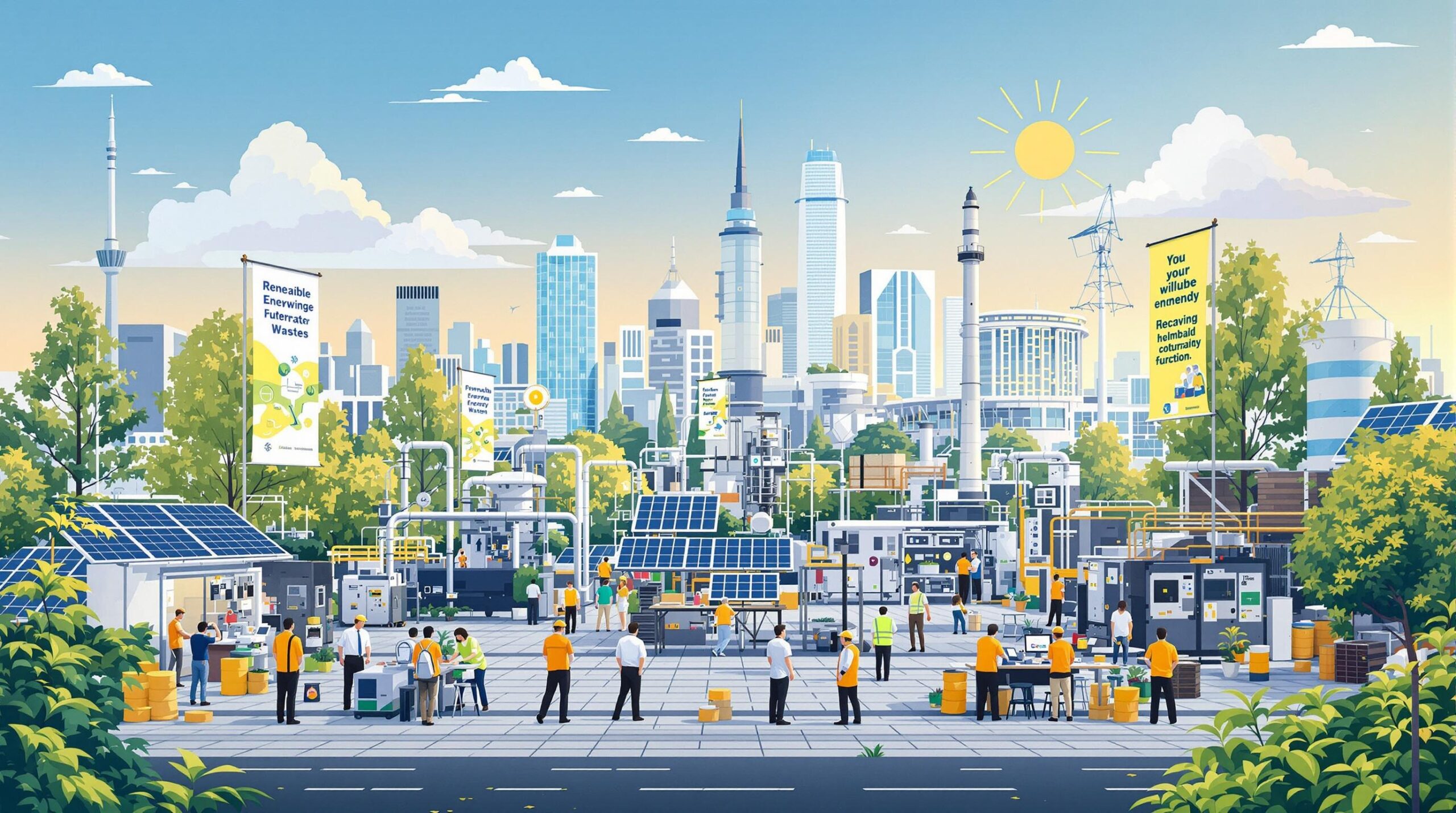Urban environments generate an extraordinary volume of waste every day. Traditional disposal methods strain landfills and contribute to environmental challenges. However, driven by necessity and innovation, tech startups are presenting a shift in how cities manage waste. These enterprises are developing advanced methods to convert urban refuse into clean, renewable energy, dramatically reshaping waste management paradigms.
The Urban Waste Challenge
City populations continue to swell, producing mounting amounts of municipal waste. Most urban centers struggle to keep up with the rising trash output. Left unmanaged, garbage invites pollution, public health risks, and environmental imbalances. Landfills, though widely used, worsen greenhouse gas emissions and occupy valuable urban land space.
Traditional incineration methods extract some energy from waste, but often emit harmful pollutants. This has led communities and regulators to seek cleaner, more efficient solutions. Clearly, a transformation in how cities handle waste is pressing and timely.
The Emergence of Waste-to-Energy Innovations
A new generation of tech startups is addressing the urban waste issue with forward-thinking solutions. By harnessing cutting-edge science and engineering, these companies convert trash into renewable energy sources. Their systems not only address disposal but also support city sustainability goals.
Modern waste-to-energy (WTE) technologies offer cleaner alternatives to both traditional incineration and dump sites. They transform household garbage, organic matter, and even plastics into usable forms of power. The result is a more circular economy where waste becomes a valuable resource instead of a liability.
Key Technologies Powering the Transformation
Advanced Incineration and Gasification
Today’s startups refine old incineration models with advanced emission controls and higher efficiency engines. Gasification technology heats waste at high temperatures, creating synthesis gas without producing as many toxic pollutants. The syngas can generate electricity or serve as a base for synthetic fuels.
Anaerobic Digestion and Biogas
Some companies employ anaerobic digesters to process organic waste. In sealed environments, bacteria break down kitchen scraps and gardening refuse, producing methane-rich biogas. This purified biogas can create electricity, heat, or fuel city vehicles.
Plastic-to-Fuel and Pyrolysis
Plastic waste poses unique urban challenges. Startup innovators use pyrolysis to decompose plastics into synthetic oils, diesel, or gas under heat without oxygen. These renewable fuels offset fossil energy and reduce landfill plastic loads.
Noteworthy Startups Leading the Movement
Numerous startups have emerged worldwide, pioneering practical waste-to-energy projects with impressive results. They embody creativity and sustainability in urban contexts.
BIOBEAN (United Kingdom)
Bio-bean transforms spent coffee grounds from UK urban coffee chains into biofuels. Instead of ending up in landfills, these grounds become pellets for heating or ingredients in sustainable transport fuels. The company also recycles grounds into flavorings and building materials, ensuring nothing goes to waste.
HomeBiogas (Israel)
HomeBiogas builds compact biodigesters for homes, businesses, and communities. Their systems convert daily food scraps and animal waste into clean cooking gas and liquid fertilizer. Distributed in cities worldwide, they empower residents to turn food scraps and organic waste directly into renewable energy at the source.
RES Polyflow (United States)
RES Polyflow specializes in converting complex plastics and tires into energy using pyrolytic processes. Their patented technology transforms non-recyclable plastics into gasoline, ultra-low sulfur diesel, and industrial waxes. The company partners with municipal waste authorities to address local plastic disposal challenges.
Benefits: From Cleaner Air to New Jobs
Waste-to-energy startups do more than reduce landfill burden. These solutions contribute to reduced greenhouse gas emissions and cleaner city air. By transforming waste into value, they also introduce new job opportunities at both the high-tech and operational levels.
Renewable fuels displace fossil energy, directly assisting city decarbonization targets. Advanced WTE facilities require skilled technicians, engineers, and logistics experts, expanding employment in green technology sectors. Municipal budgets benefit from reduced landfill costs and increased local energy production.
Challenges and Considerations
Despite their promise, WTE startups face technical and social hurdles. Initial investment for new infrastructure remains high for many projects. Cities must evaluate site selection, public safety, and community engagement before advancing large projects.
Regulatory compliance ensures that technologies meet strict air, soil, and water quality standards. To gain public trust, transparency and accurate communication about health and safety impacts are essential. Many startups work closely with urban planners and residents to overcome skepticism and build long-term partnerships.
Future Prospects and Scaling Up
As cities strive to meet climate goals, the role of innovative waste-to-energy solutions will only grow larger. Collaboration among startups, government entities, and private investors accelerates deployment. Modular and decentralized WTE tech adapts quickly to changing community needs and waste profiles.
Investors see the potential for strong returns as WTE startups become vital players in the global renewable energy sector. Enhanced automation, artificial intelligence, and real-time monitoring make tomorrow’s waste-to-energy facilities more efficient and adaptable. Education campaigns and public policies will help broaden acceptance and understanding among urban dwellers.
Conclusion: Toward a Circular Urban Economy
Innovative tech startups are revolutionizing how urban areas view and manage waste. By turning refuse into a resource, they drive sustainable development and climate action. As cities adopt and scale these solutions, the vision of a circular urban economy draws closer to reality.
Fostering partnerships between technology developers, city leaders, and citizens will shape the next era in waste management and energy production. It is an exciting time in urban sustainability, with innovation paving the way to cleaner, greener, and more resilient cities worldwide.


